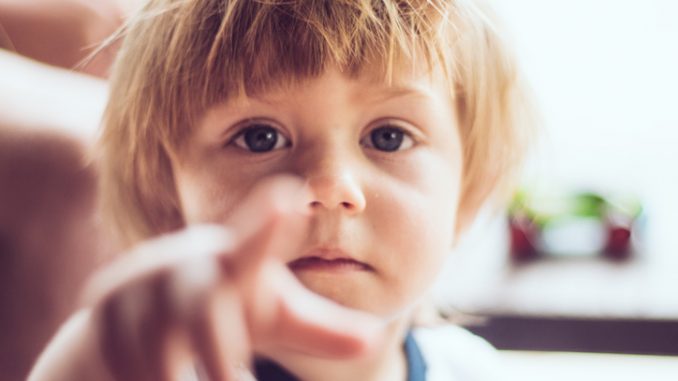
By
I never liked children. This was most true when I was a child myself and was subjected to my peers’ constant curiosity about my body. Being stared at is my oldest, most familiar feeling. I have a rare congenital condition called sacral agenesis, which limits the growth of the lower half of my body and causes me to walk with a wide, side-to-side gait.
Adults trained in social niceties are better at masking their curiosity, but children simply gawk, point, comment. Recess was, predictably, the worst. In the less-supervised courtyard at my school, kids were free to circle me and stare. Some liked to make a game of my body. Boys would lift me as high in the air as they could to brag about how easily it could be done; girls, too, liked to carry me around and refer to me as if I were their living doll.
As I edged toward adulthood, I remained uncomfortable around children. They required a specific kind of energy and patience I didn’t always have. Any kid-friendly public space — a grocery store, a park — could become the site of a vocal interrogation of my body. Why are you so short? Why do you walk like that? What’s wrong with you? Of course, I knew not to be upset at an actual child for asking these questions. But I did feel a general resentment about the fact that few public tasks could be completed without first being confronted by the oddity of my body in the eyes of others. I’d often stand silently and look the kid dead in the eyes until a scolding parent appeared to yank their child’s arm and hiss the pairing of words I’ve overheard more than any other in my life: Don’t stare!
When the interaction was over, I’d usually continue on with whatever I’d been doing, not giving the moment a second thought. But sometimes I’d feel angry, frustrated, embarrassed. Sometimes I’d go home and cry. Sometimes I’d think it was unfair that I had a body I was constantly asked to decode in order to satisfy someone else’s curiosity or ease their discomfort. Always, I dreaded the moment my body would be in a public space. My interactions with kids and their families bothered me the most because I always felt I’d made some significant mistake. It took me becoming a parent — which is to say it took me way too long — to recognize just what was going wrong.
In 2011, I gave birth to my son, Wolfgang. On his first day of kindergarten, my husband and I walked him to class, feeling the ordinary mix of parental anxiety and excitement. I couldn’t stop looking at my son and thinking how strange it was that I was about to hand him and his education over to the care of strangers. I was so distracted that — right in front of his school, in the middle of a swarm of children and their parents — I tripped and fell, hard. There was an immediate ripple effect of children’s eyes turning to me; some gasped, some laughed — some parents, likely on edge for the same reasons we were, whispered rebukes to their children. A nearby parent was frozen in embarrassment. Another ran toward me spewing apologies for her still-cackling child.
Read the entire article on TheCut.com by clicking here.
